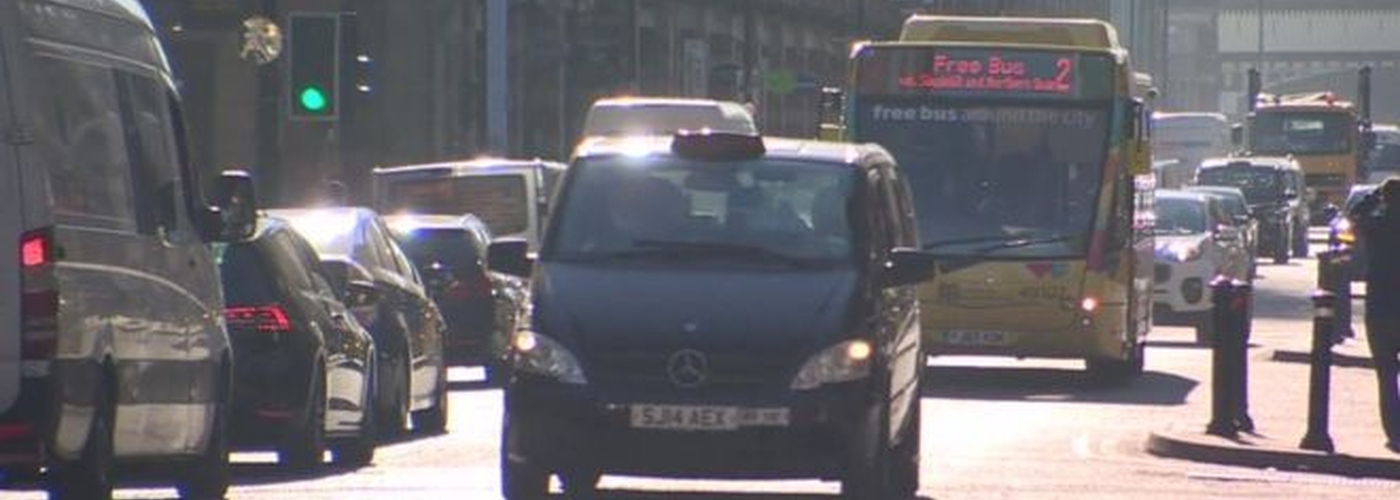Extinction Rebellion closed the street to traffic for four days - Andrea Sandor finds out what we learned
For four days at the end of August, Extinction Rebellion (XR) took over Deansgate, closing off a section of the road to traffic. Protesters pitched tents, set up marquees and hay bales, and held talks and workshops about combating the climate crisis. Far from a stereotypical ‘protest’, the atmosphere was that of a community street festival. Children printed T-shirts, free food was served, and the samba band regularly paraded up and down the street to much fanfare.
The stretch was designated an alcohol- and drug-free zone, attracting young families to take part in the festivities. Several shopkeepers I spoke with liked having XR as neighbours, one saying “I actually enjoyed coming to work,” while another said, “I don’t think everyone realises how many people are depressed. This was a change of scenery for the community. It was uplifting.”
Only three of the 37 businesses I surveyed said they definitely wouldn’t support pedestrianisation
However, the street closure was contentious with concerns it would hurt businesses and cause major travel disruptions. The beauty of the four-day closure, however, is it provided a low-risk opportunity to trial closing the street to traffic. This is a move cities around the world are making to tackle the pollution and climate crisis.
So now that the dust has settled, let’s look more objectively at what impact the street closure had on three key metrics: air pollution, business and transport.
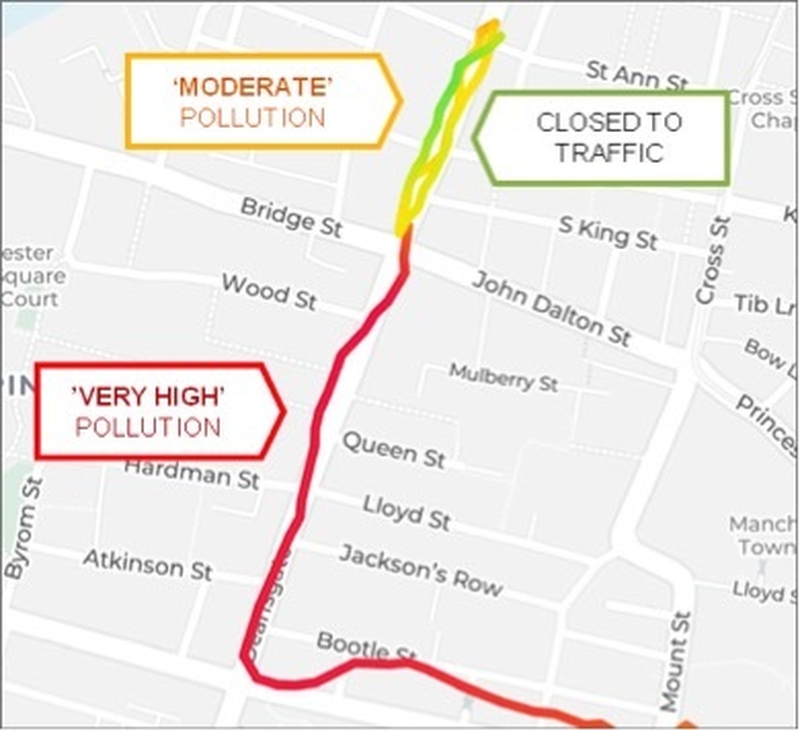
The impact on air quality
Deansgate is one of the city’s most polluted roads, with “lethal and illegal” levels of air pollution. This is one of the reasons why XR chose to occupy the site to raise awareness about the climate crisis.
Members of WalkRide, a campaign group lobbying for improved walking and cycling infrastructure in Greater Manchester, carried out air quality readings on a handheld device borrowed from the University of Manchester.
The results, visualised above, are striking.
On the fourth day of the closure, when the readings were taken, air pollution levels in the occupied stretch were significantly lower than those further down on Deansgate, where the road was still open to traffic.
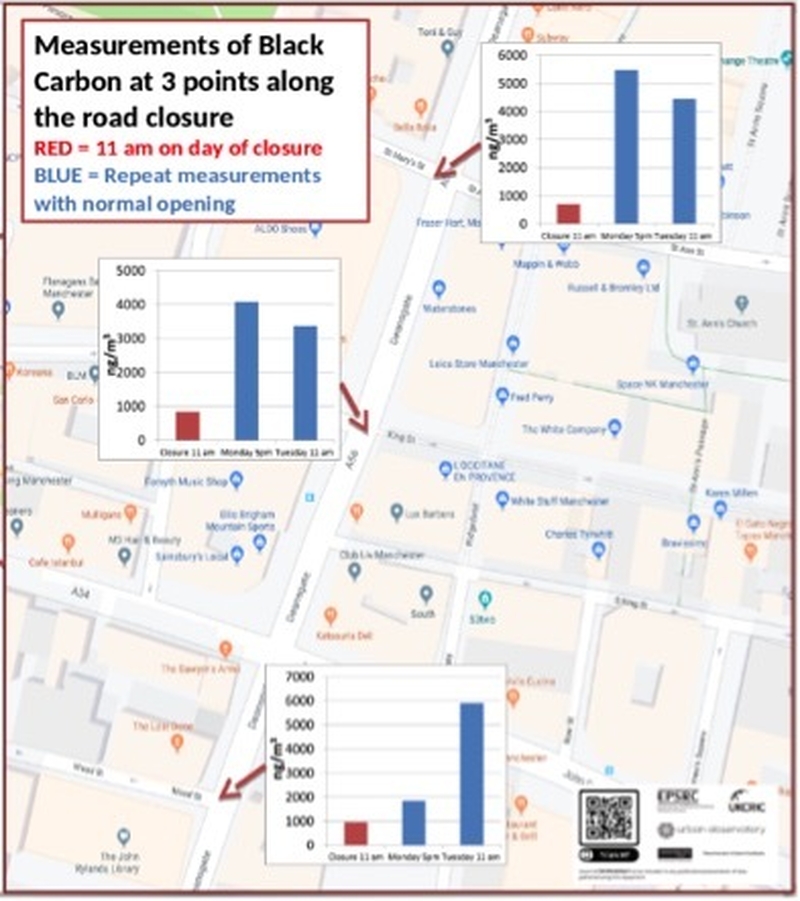
The device WalkRide used captured the levels of particulate matter (PM2.5 and PM10), a form of air pollution that results from brake dust and tyre wear. Microscopic plastic particles penetrate the bloodstream, lungs, and heart and are linked to a variety of health problems.
The World Health Organisation (WHO) recommends a safe annual mean limit of 10. Where Deansgate was still open to traffic, PM2.5 levels were 86. Along the stretch closed off to traffic, they fell to 19.
The University of Manchester also measured levels of black carbon – the material emitted from petrol and diesel engines – during and after the occupation. They showed levels were significantly lower when the street was closed to cars.
From the perspective of air quality, pedestrianising Deansgate is a no-brainer. The quickest and easiest way to dramatically improve air quality is by closing the street to traffic, and hopefully those levels would be brought down further if permanently pedestrianised.
These guys are our neighbours this weekend! Enjoying the pedestrianised Deansgate, gotta say. @XR_MCR #NorthernRebellion pic.twitter.com/PtiJuoIkXh
— Waterstones Manchester Deansgate (@WaterstonesMCR) August 31, 2019
The impact on businesses
After all the hoopla about the potential impact on businesses, I wanted to take a more systematic approach to the issue. Once the protesters had gone, I went into each business along the stretch that had been closed off and carried out a quick survey with two questions;
What impact had the street closure had on business compared to what they would normally have expected? And to what extent would they support the pedestrianisation of Deansgate?
A few quick caveats: this survey is neither rigorous nor scientific. That said, this approach is more thorough than popping into a few shops at random or just reporting the most extreme positions.
All in, 37 businesses took part in my survey. The remainder either didn’t have a manager on hand or directed me to their head office.
Two thirds reported business was the same or better than expected. These were more likely to be casual food and drink establishments. The third who reported lower than expected takings were more likely catering to a ‘high-end’ market, such as fashion retailers and fine dining establishments.
Farewell #NorthernRebellion! We've enjoyed having you as neighbours. You've brought us lots more customers to our music shop than we'd normally get at this time of year, but most of all thank you for bringing fresh air to Deansgate. We'll miss you when the traffic is back.
— Forsyth Music Shop (@ForsythMusic) September 2, 2019
What’s particularly interesting, though, is that over half of those reporting lower takings say they would definitely support pedestrianisation. They attribute the lower sales not to the street closure but to their customer base being put off by reports of ‘protesters’.
Faye Levenson is the store manager of Hobbs, a female fashion brand. She reported lower takings during the protest and a 6% drop in footfall-to-sales conversion. Nevertheless, she’d like to see Deansgate pedestrianised and thinks it would improve business. “Look at Market Street,” she says, “It’s packed. Those businesses are doing really well.”
Faye is confident the street closure and transport concerns aren’t what kept her customers away. “The protesters put people off,” she explains, “although it turned out to be more of a celebration.”
This is a refrain I heard from several businesses who were anticipating trouble from the protesters and street closure.
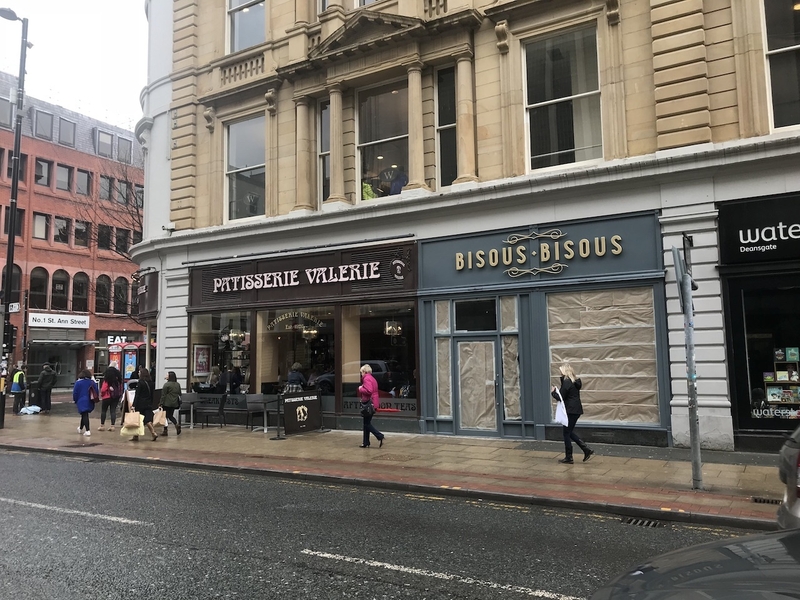
“I was dreading it,” the manager of Toni & Guy says, “but it was fine.” There were few cancellations for hair appointments, no more than usual, and the protest was actually enjoyable. “It was a great atmosphere, really friendly,” she says with a smile.
Regarding pedestrianisation, she says, “It would be lovely to have no cars,” and references a Toni & Guy location in Chester that saw business improve following pedestrianisation.
This is what studies have shown time and time again. Although businesses are often concerned removing cars will lead to a fall in sales, research shows otherwise.
The most famous example is New York’s Times Square, which was initially opposed by local businesses who feared closing the street to cars would hurt business. However, the trial pedestrianisation proved so successful, it was made permanent.
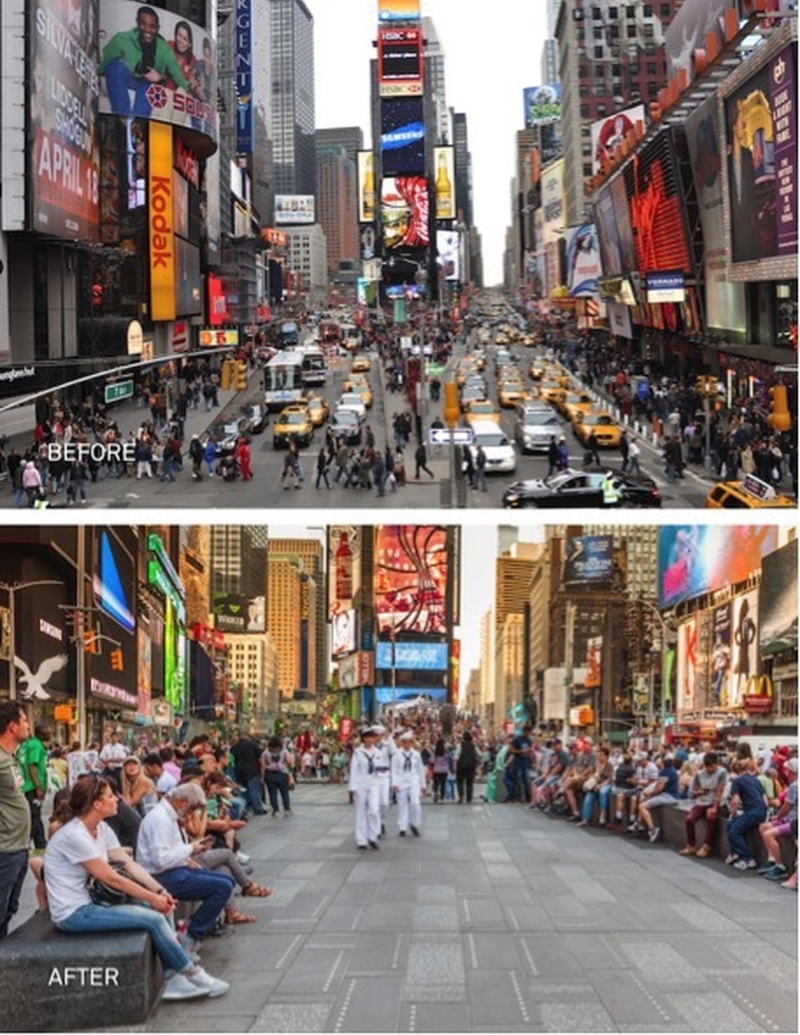
Another study by New York’s Department of Transport of three pedestrian plaza projects found adjacent retail sales went up by 47-50% after three years. They concluded: “It is clear that rolling out safer, more inviting, and sustainable streets is rarely detrimental to local businesses and in the majority of cases can be a boon to them.”
Back here in Manchester, only three of the 37 businesses I surveyed said they definitely wouldn’t support pedestrianisation. The majority were open to closing the road to traffic and thought it could improve sales - evidence from other cities is on their side.
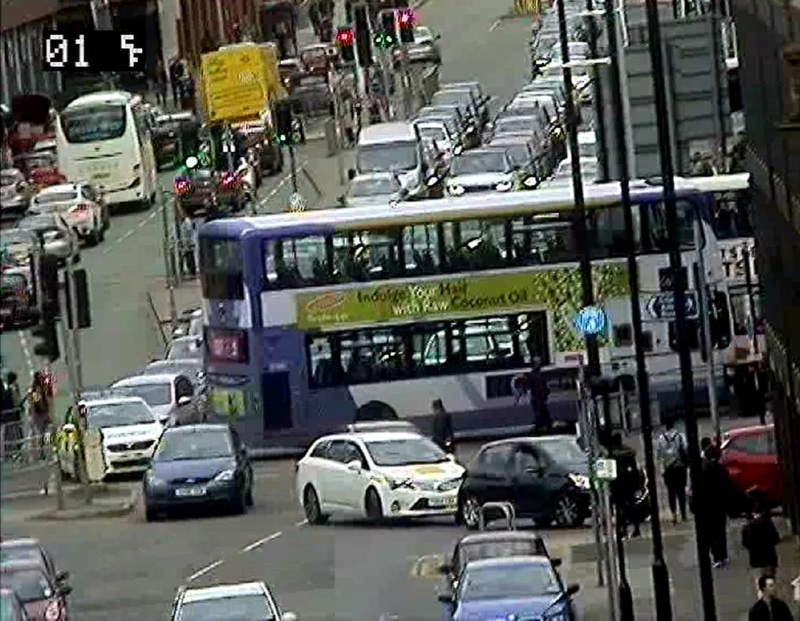
The impact on transport
When the Northern Quarter closed Stevenson Square for five hours in June, local media went to town reporting live updates of the chaotic traffic delays the closure caused. It turned out a major factor was actually a bus that had broken down at the Oldham Street junction - although obviously this didn’t make it into the headlines.
I anticipated similar news reports off the back of the XR street closure. After all, Deansgate is a major rat-run through the city centre.
And yet there were no such reports.
Once the protest ended, I contacted TfGM to get the official word on traffic disruption over the four days. A spokesperson said:
“We worked with our agency partners such as Manchester City Council, Greater Manchester Police, local authorities and city centre communities and businesses to develop and deliver a comprehensive plan.
“The measures introduced – which included live updates, a dedicated travel advice webpage, road diversions and bus re-routes – ensured the event passed with minimal travel disruption.”
Extinction Rebellion had contacted the Council and police 2.5 weeks before the protest, giving them time to reroute buses and for businesses to plan how they would receive deliveries. As a result, the diversion didn’t bring the city to a standstill.
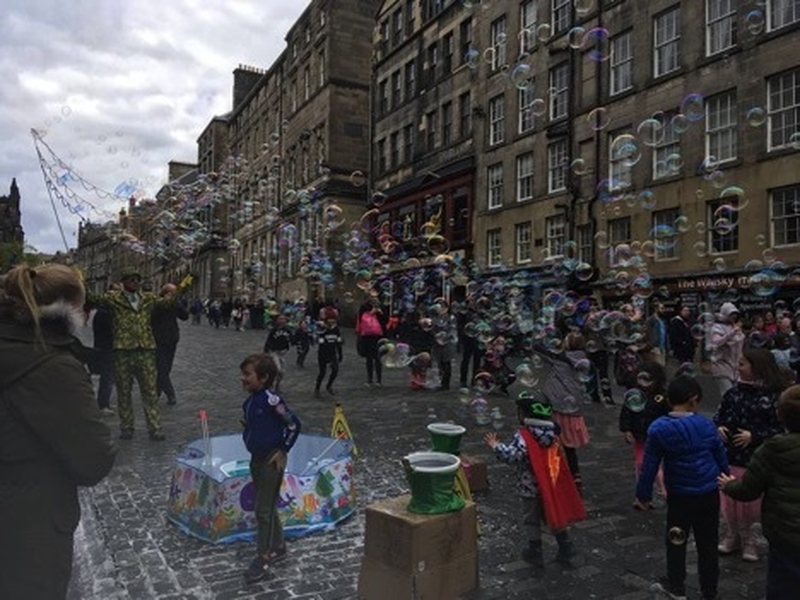
The Council appear to be on board with pedestrianising Deansgate. Re-routing buses is the only sticking point.
In a statement to the MEN, Cllr Angeliki Stogia said: “the only thing that is currently preventing us from implementing this long-term aspiration to pedestrianise a section of Deansgate is resolving how buses could be re-routed, with bus transport of course also vital to reducing car journeys to and from, and within, the city centre.”
When it comes to making cities car-free, the bigger picture is radically increasing investment in public transport provision, as well as developing comprehensive walking and cycling infrastructure.
We've had an amazing day of Go-Ride racing and watching the final stage of the @TourofBritain in #Manchester. For more cycling fun join us tomorrow for our amazing family cycling festival Let's Ride Manchester! #cycling #weekend #tourofbritain pic.twitter.com/NE9a40AdXm
— Let's Ride North West (@letsride_NW) September 14, 2019
Definitely how Deansgate should be all the time!! Deliveries between 8pm and 8am maybe.... then this! pic.twitter.com/HbODtnJkkV
— Anne Duffield (@AnneDuffield1) September 15, 2019
Closing the road for four days provided a low-risk opportunity to test pedestrianising Deansgate. We’ve learned that removing cars is popular with the public, significantly improves air quality, and is unlikely to hurt businesses or cause major transport issues - if done right.
WalkRide are calling for monthly street closures to provide more opportunities to trial and test what a car-free Deansgate would be like. I say bring it on!
Follow Andrea Sandor @wordstoseeby
So what do you think?
Deansgate Labour councillors are gathering views on pedestrianising Deansgate with a short survey.
You can also sign the petition to pedestrianise Deansgate.
Let us know your views in the comments below.





